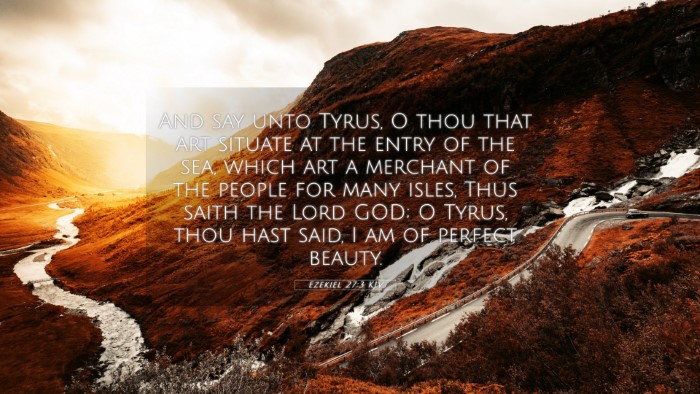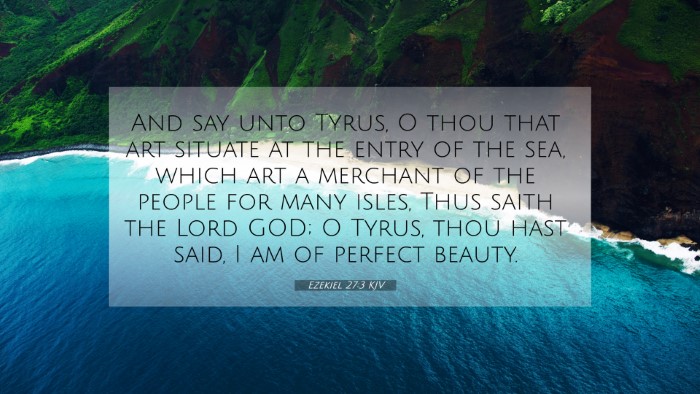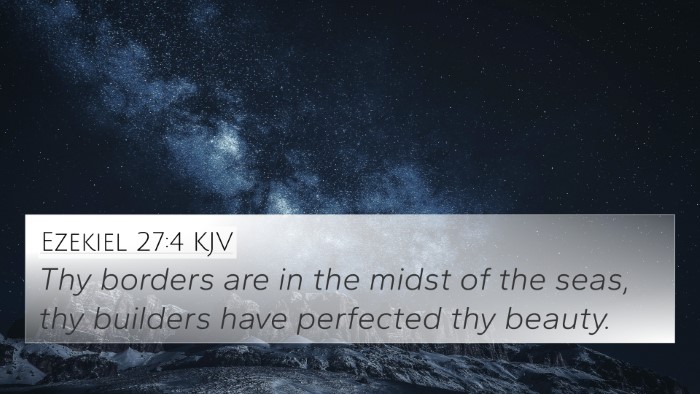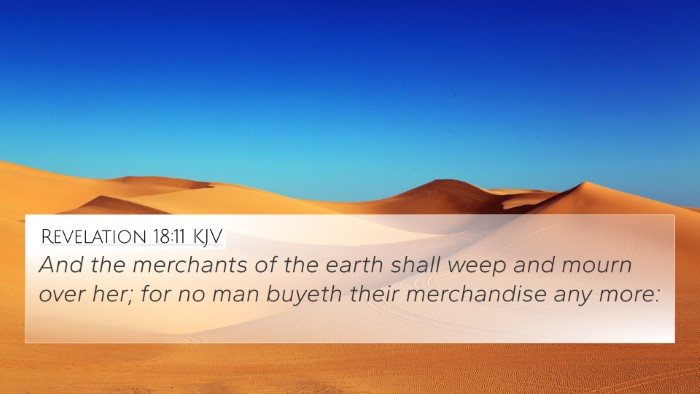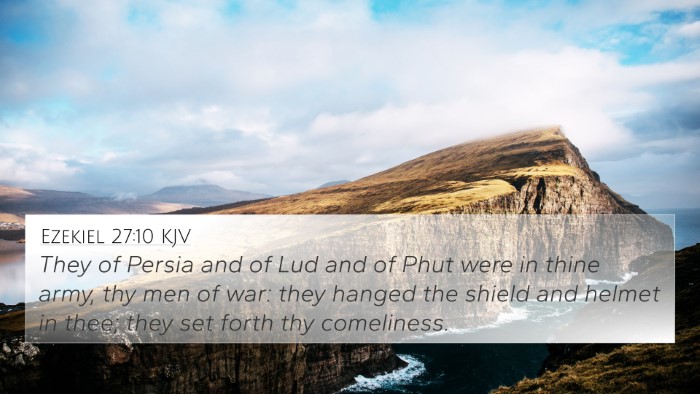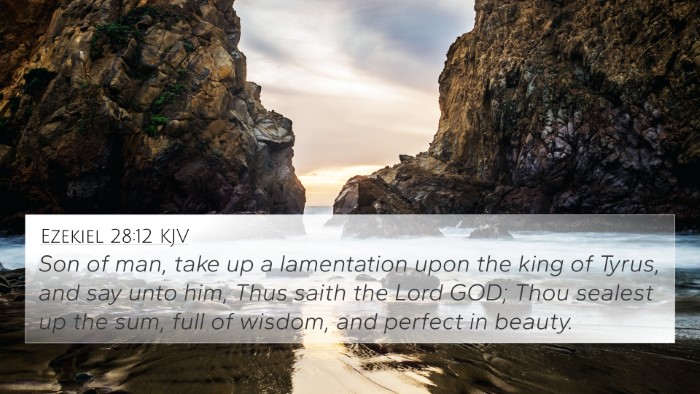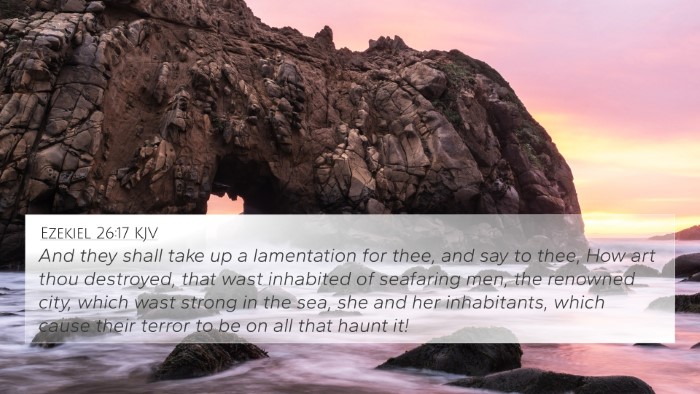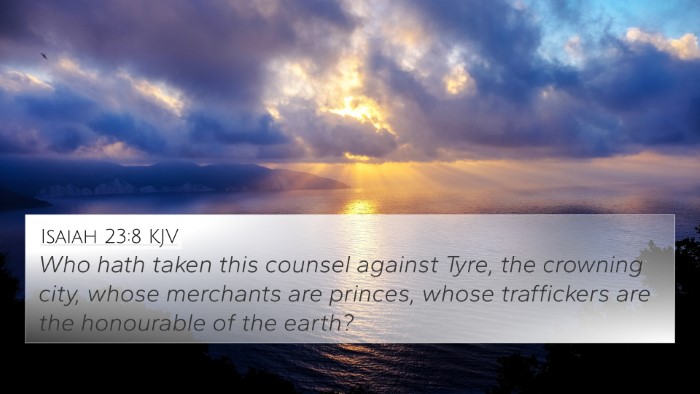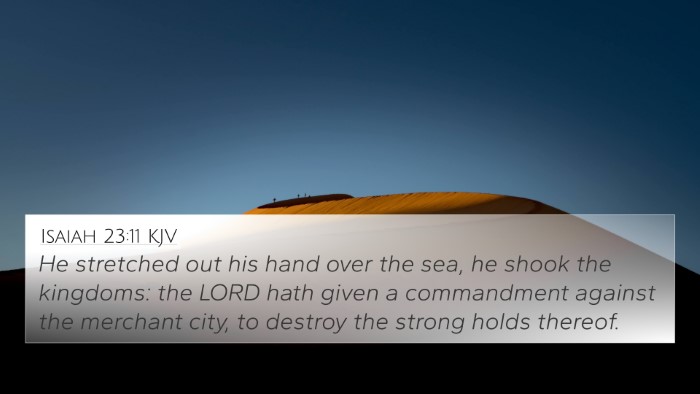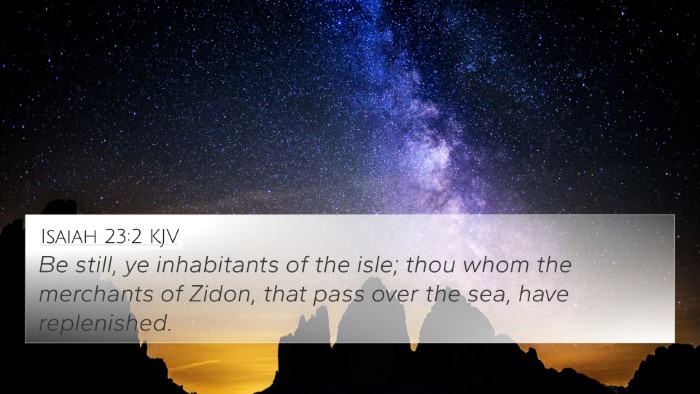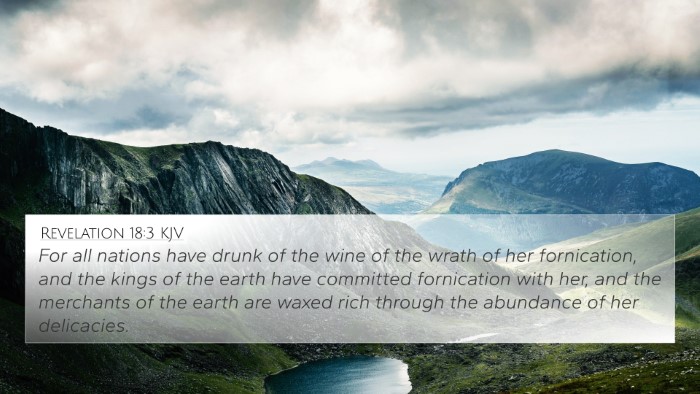Ezekiel 27:3 - Understanding the Verse
Ezekiel 27:3 reads: "And say unto Tyre, O thou that art situate at the entry of the sea, which art a merchant of the people for many ages, thus saith the Lord GOD; O Tyre, thou hast spoken against the people of Israel, saying, 'Ah, she is broken, that was the business of the people!'" This verse speaks to the city of Tyre, illustrating its prominence in trade and the prophecy concerning its downfall.
Contextual Background
Tyre was a thriving Phoenician city known for its wealth and maritime trade. The prophet Ezekiel, speaking for God, addresses Tyre to highlight its judgments because of its pride and adversarial stance toward Israel. The reference to Tyre's location emphasizes its importance as a commercial hub.
Commentary Insights
- Matthew Henry: Henry notes that Tyre symbolizes the pride of nations that become overconfident in their wealth and power. He emphasizes that God's judgment is inevitable against those who boast of their might against His people.
- Albert Barnes: Barnes highlights the metaphorical language used in the verse, stating that it reflects Tyre's long-standing role as a merchant city. He points out the significance of its maritime position and how it was viewed as a gateway for commerce and symbolism for reliance on worldly resources rather than God.
- Adam Clarke: Clarke elaborates on the connections between Tyre's commerce and its eventual downfall. He interprets this verse within the broader context of God’s justice, demonstrating that those who think they are invulnerable owing to their riches will face divine consequences.
Bible Verse Cross-References
Ezekiel 27:3 connects with various scriptures highlighting themes of pride, judgment, and the consequences of opposing God’s chosen people. Here are some relevant cross-references:
- Isaiah 23:1-2: This passage speaks of the lamentation for Tyre, demonstrating its significance in trade and its eventual destruction.
- Jeremiah 25:22: References the kingdoms of Tyre and Sidon among those that face God’s judgment.
- Zechariah 9:3: Mentions Tyre’s wealth and the Lord's action against it.
- Revelation 18:17-19: The fall of Babylon is likened to the fall of Tyre, showcasing the fate of prosperous cities.
- Revelation 17:4: Illustrates the wealth and splendor likened to Tyre but also prophesies downfall.
- Matthew 11:21: Jesus references cities like Tyre during His ministry to highlight the consequences of rejection of God’s message.
- Psalm 48:1-2: Celebrates Zion but reflects on the contrast with other cities, including Tyre.
- Ezekiel 26:2: Further discusses the forecast of destruction against Tyre for its arrogance.
- Amos 1:9: Condemns Tyre for its actions against Israel, reiterating the theme of divine retribution.
- Ezekiel 28:12-17: Refers to the King of Tyre, portraying pride that mirrors the pride of Satan.
Thematic Connections
Several thematic connections emerge from Ezekiel 27:3 that resonate throughout Scripture:
- Divine Judgment: The overarching theme of divine judgment against nations that boast against God reflects in various books, particularly in the prophetic literature.
- The Futility of Wealth: Scriptures consistently communicate that material wealth is transient and will not withstand God’s judgment.
- Idolatries of Nations: Many nations, like Tyre, are warned against their idolatries of commerce and trade, which distract them from true devotion to God.
Tools for Bible Cross-Referencing
For a deeper understanding of connections between Bible verses, employing tools for Bible cross-referencing is beneficial. These can include:
- Printed Bible concordances that catalog related verses.
- Bible reference resources like commentaries or study Bibles that provide insights into thematic connections.
- Cross-reference guides that facilitate the identification of interrelated scriptures.
- Online tools and databases that allow for quick cross-referencing and thematic searches.
- Chain references that connect verses through themes and ideas for study preparation.
Conclusion
Ezekiel 27:3 serves as a powerful reminder of God's authority over earthly powers and their inevitable downfall when they oppose His plans. The thematic connections and cross-references illuminate the text's relevance within the broader Biblical narrative, underlining the lessons on pride, judgment, and the transience of worldly success. By employing tools for biblical cross-referencing, readers can uncover deeper understandings and linkages between scriptures, enriching their study and comprehension of the Bible.

